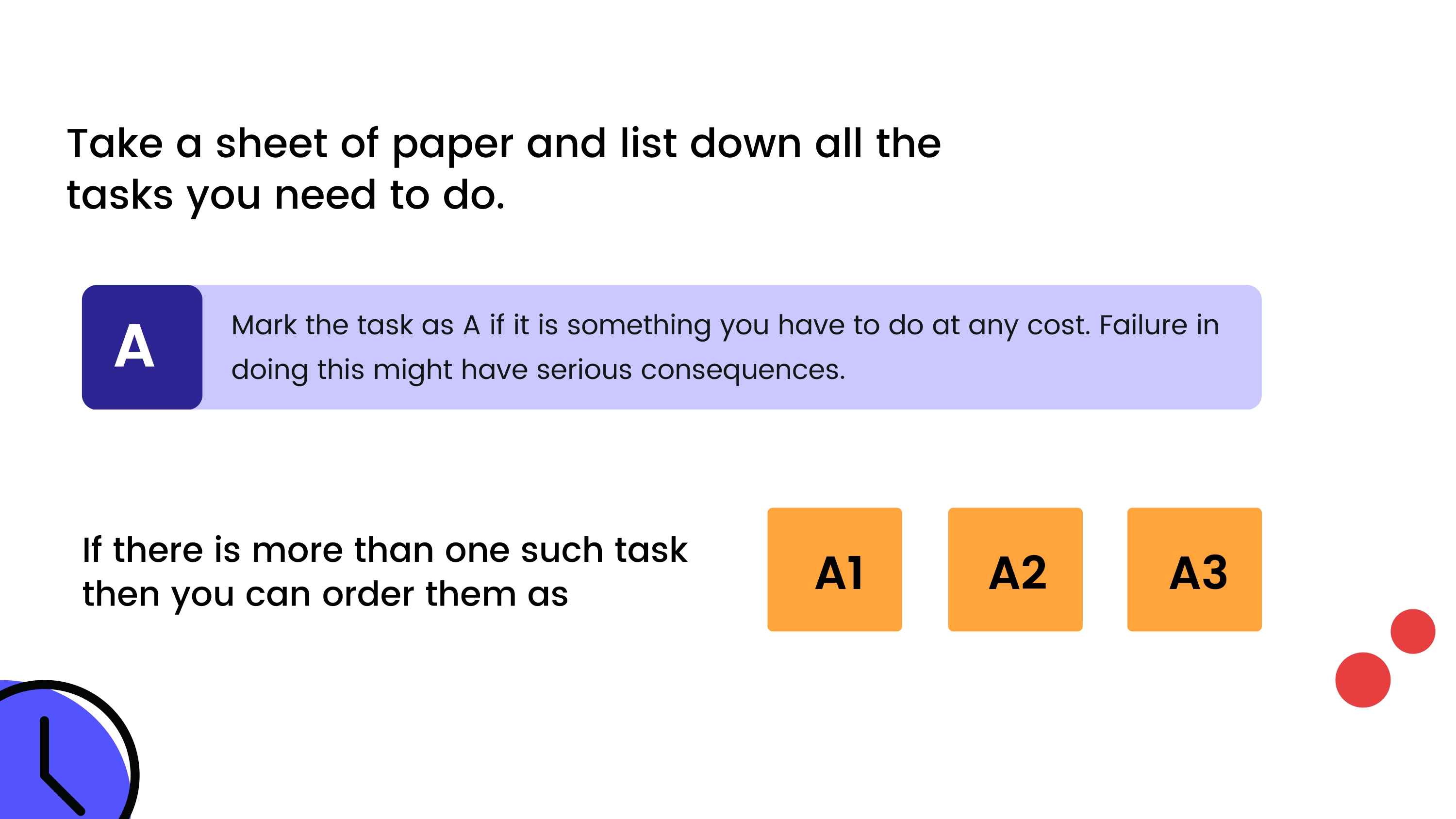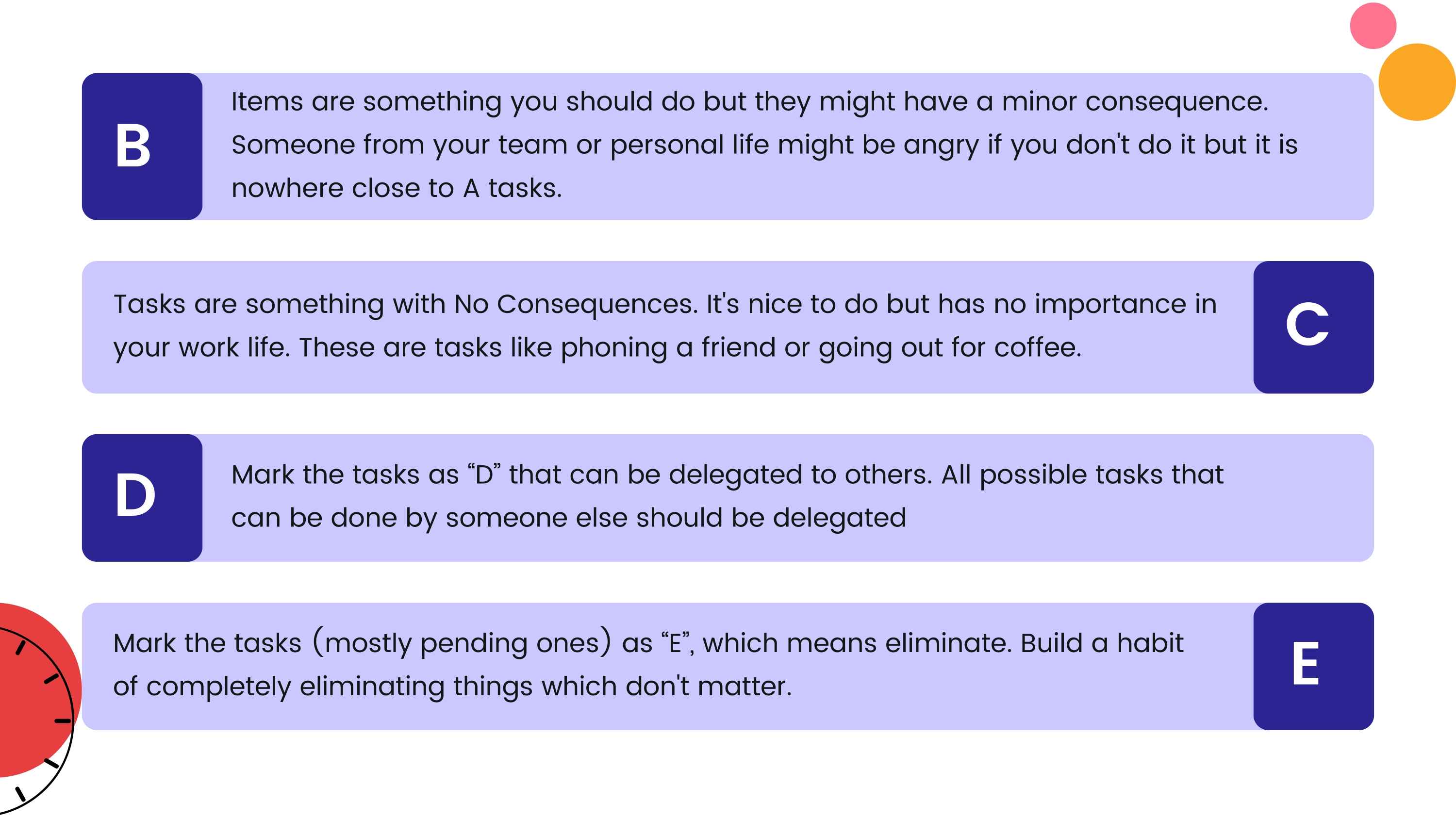Chapter 4: Do You Plan
Importance of Timely Planning
Doing things on time will help you reach the top of your career within the shortest possible time.
At your workplace, if you are working just for namesake, then most of the time you will be complaining about the workload and feeling pressured. But actually understanding the deadline and planning properly will eliminate such thoughts and feelings.
Example: Mr. Jay's Task
Let's take an example. Say Mr. Jay has been given a task to survey all the machinery in the company and shortlist the ones which need maintenance. The deadline for this task is in 2 weeks.
Firstly, this is the goal for Mr. Jay. He has to realize the importance of what he has to do and by when it has to be done! The right approach would be to sit with a paper and pen and PLAN the process. Planning is basically breaking the goal into small tasks and analyzing the duration for each small one. Once the tasks have been identified, Mr. Jay will schedule it on his calendar. There might be overlapping tasks or crucial appointments. At such a stage, Mr. Jay will plan based on the priorities of the tasks! Knowing the priority is also important.
Once done, Mr. Jay will print this out and keep it at his desk where he can see it every day to track the progress. His plan would be to complete 60% of the survey by the 1st week and the rest 40% in the first 5 days of the 2nd week, giving him a buffer time of 2 days.
You always need to keep some buffer time while planning. A common mistake that many do is that they plan everything cut to cut. Is life really that certain? No! We need to keep a buffer time for some emergency calls or pending tasks.
ABCDE Method
In the next video, we will try an activity called the ABCDE method. It's a fun activity but will help you understand your daily tasks better.
So this is how we are going to plan your day! Take a sheet of paper and list down all the tasks you need to do. Once done, we will begin the ABCDE method:
“A” items are the most important ones. Mark the task as A if it is something you have to do at any cost. Failure in doing this might have serious consequences. If there are more than one such task, then you can order them as A1, A2, A3, etc.
“B” items are something you should do but they might have a minor consequence. Someone from your team or personal life might be angry if you don't do it but it is nowhere close to A tasks. A simple example would be replying to WhatsApp messages or returning emails.
“C” tasks are something with No Consequence. It's nice to do but has no importance in your work life. These are tasks like phoning a friend or going out for coffee. Remember, you cannot do the “C” tasks if you have “A” and “B” tasks pending.
“D” tasks can be delegated to others. All possible tasks that can be done by someone else should be delegated because it gives you more time for “A” and “B” tasks.
Now mark the tasks (mostly pending ones) as “E”, which means eliminate. Time management is all about spending your time on important things. So build a habit of completely eliminating things which don't matter.
With this activity, you will have your list of important tasks to actually complete and manage your time effectively.
ABCDE Method Task Management Activity
Enter your tasks and categorize them using the ABCDE method:




